Soon after the Swiss shocked the world by abandoning their currency's peg to the euro, Hong Kong's Financial Secretary John Tsang hit the airwaves. His very clear message: the city's U.S. dollar peg would hold firm.
Tsang, however, has credibility issues. In recent years, he's cited Switzerland's commitment to capping its currency as inspiring his own. That sounded fine until Swiss National Bank President Thomas Jordan unexpectedly freed the franc. Speculators very quickly drove the Hong Kong dollar toward the top of its trading band.
More importantly, Hong Kong's 32-year-old peg may now be fueling social discontent. Last year's Umbrella Revolution had as much to do with surging inequality as democracy -- a problem captured most vividly by stratospheric property prices that have put homeownership out of reach for many citizens. Hong Kong's undervalued dollar has made that problem worse, by attracting tidal waves of Chinese money. (In 2013, Hong Kong received $47 billion of direct-investment inflows from the mainland, and another $342 billion from the British Virgin Islands, a favorite haven among ultrarich Chinese.)
Has the policy currency outlived its usefulness? There are many reasons to think Hong Kong won't go rogue the way Zurich did. Any decision to scrap the peg would be made in Beijing, where Hong Kong Chief Executive Leung Chun-ying's political bosses reside. And at least some of the Communist Party elite care more about ready access to Hong Kong's property market than the anxieties of the city's middle class.
Hong Kong's financial regulators are themselves a decidedly risk-adverse bunch that sees the peg as a reassuring backstop. "It can be called a magic needle for calming the sea of the Hong Kong economy," Tsang said earlier this week. It's also worth noting the differences between Switzerland (which essentially was manipulating its currency) and Hong Kong's formal lock to a specific U.S. dollar value.
But the peg also limits the government's room to maneuver. Even with curbs introduced to cool demand, real-estate prices surged 12 percent in the first 11 months of 2014 to a record. The city's 5.1 percent inflation rate is double the Asian average. While an undervalued currency isn't the sole culprit, it's surely one of the main factors driving up prices. Of course, the peg works both ways. Capping the dollar helps exports, supporting economic growth. And amid talk China may begin devaluing the yuan, Hong Kong's capital-inflow challenges may recede in the short run. They're sure to return, though.
To ease the strain, Hong Kong could try something drastic: pegging its dollar to the yuan. More realistically, it could adopt a gradualist course and link the dollar to a Singapore-like basket of currencies. Perhaps the highest-level call in recent months for the city to study its options came from Peter Wong, Asia-Pacific CEO for HSBC. Along with the above-mentioned possibilities, Wong raised the idea of letting the Hong Kong dollar float, or even naming the yuan as legal tender.
In his 2013 book, "Street Smarts," investor Jim Rogers warned Friday's Swiss shock was coming. I checked with him this week and asked if Hong Kong might be next. "It will happen," he replied, "but I keep thinking it will be after the [yuan] is completely convertible." Trouble is, there's no guarantee when that might happen, especially as China's growth slows and officials in Beijing worry about capital flight.
At the very least, the Swiss surprise should spur a public debate about the pros and cons of Hong Kong's peg. If scrapping it can help ameliorate the city's socioeconomic tensions, perhaps it's time for Hong Kong to shock the world, too.
|
JOHN RUBINO'SLATEST BOOK |
|||||||||||||||||||||||||||||||||||||||||||||||||||||||||||||||||||||||||||||||||||||||||||||||||||||||||||||||||||||||||||||||||||||||||||||||||||||||||||||||||||||||||||||||||||||||||||||||||||||||||||||||||||||||||||||||||||||||||||||||||||||||||||||||||||||||||||||||||||||||||||||||||||||||||||||||
"MELT-UP MONITOR " Meltup Monitor: FLOWS - The Currency Cartel Carry Cycle - 09 Dec 2013 Meltup Monitor: FLOWS - Liquidity, Credit & Debt - 04 Dec 2013 Meltup Monitor: Euro Pressure Going Critical - 28- Nov 2013 Meltup Monitor: A Regression-to-the-Exponential Mean Required - 25 Nov 2013
|
"DOW 20,000 " Lance Roberts Charles Hugh Smith John Rubino Bert Dohman & Ty Andros
|
HELD OVER
Currency Wars
Euro Experiment
Sultans of Swap
Extend & Pretend
Preserve & Protect
Innovation
Showings Below
"Currency Wars "
|
"SULTANS OF SWAP" archives open ACT II ACT III ALSO Sultans of Swap: Fearing the Gearing! Sultans of Swap: BP Potentially More Devistating than Lehman! |
"EURO EXPERIMENT"
archives open EURO EXPERIMENT : ECB's LTRO Won't Stop Collateral Contagion!
EURO EXPERIMENT: |
"INNOVATION"
archives open |
"PRESERVE & PROTE CT"
archives open |

Tue. Jan. 27th, 2015
Follow Our Updates
on TWITTER
https://twitter.com/GordonTLong
AND FOR EVEN MORE TWITTER COVERAGE
STRATEGIC MACRO INVESTMENT INSIGHTS
 2014 THESIS: GLOBALIZATION TRAP
2014 THESIS: GLOBALIZATION TRAP
NOW AVAILABLE FREE to Trial Subscribers
185 Pages
What Are Tipping Poinits?
Understanding Abstraction & Synthesis
Global-Macro in Images: Understanding the Conclusions
![]()
| JANIUARY | ||||||
| S | M | T | W | T | F | S |
| 1 | 2 | 3 | ||||
| 4 | 5 | 6 | 7 | 8 | 9 | 10 |
| 11 | 12 | 13 | 14 | 15 | 16 | 17 |
| 18 | 19 | 20 | 21 | 22 | 23 | 24 |
| 25 | 26 | 27 | 28 | 29 | 30 | 30 |
KEY TO TIPPING POINTS |
| 1 - Risk Reversal |
| 2 - Japan Debt Deflation Spiral |
| 3- Bond Bubble |
| 4- EU Banking Crisis |
| 5- Sovereign Debt Crisis |
| 6 - China Hard Landing |
| 7 - Chronic Unemployment |
| 8 - Geo-Political Event |
| 9 - Global Governance Failure |
| 10 - Chronic Global Fiscal ImBalances |
| 11 - Shrinking Revenue Growth Rate |
| 12 - Iran Nuclear Threat |
| 13 - Growing Social Unrest |
| 14 - US Banking Crisis II |
| 15 - Residential Real Estate - Phase II |
| 16 - Commercial Real Estate |
| 17 - Credit Contraction II |
| 18- State & Local Government |
| 19 - US Stock Market Valuations |
| 20 - Slowing Retail & Consumer Sales |
| 21 - China - Japan Regional Conflict |
| 22 - Public Sentiment & Confidence |
| 23 - US Reserve Currency |
| 24 - Central & Eastern Europe |
| 25 - Oil Price Pressures |
| 26 - Rising Inflation Pressures & Interest Pressures |
| 27 - Food Price Pressures |
| 28 - Global Output Gap |
| 29 - Corruption |
| 30 - Pension - Entitlement Crisis |
| 31 - Corporate Bankruptcies |
| 32- Finance & Insurance Balance Sheet Write-Offs |
| 33 - Resource Shortage |
| 34 - US Reserve Currency |
| 35- Government Backstop Insurance |
| 36 - US Dollar Weakness |
| 37 - Cyber Attack or Complexity Failure |
| 38 - Terrorist Event |
| 39 - Financial Crisis Programs Expiration |
| 40 - Natural Physical Disaster |
| 41 - Pandemic / Epidemic |
Reading the right books?
No Time?
We have analyzed & included
these in our latest research papers Macro videos!
![]()
OUR MACRO ANALYTIC
CO-HOSTS
John Rubino's Just Released Book
Charles Hugh Smith's Latest Books
Our Macro Watch Partner
Richard Duncan Latest Books
MACRO ANALYTIC
GUESTS
F William Engdahl
OTHERS OF NOTE
Book Review- Five Thumbs Up
for Steve Greenhut's
Plunder!
NOTE: SITE UPDATES MAY BE DELAYED DUE TO EXPECTED
STATE WIDE POWER OUTAGES
TODAY'S TIPPING POINTS
|
Scroll TWEETS for LATEST Analysis
Read More - OUR RESEARCH - Articles Below
HOTTEST TIPPING POINTS |
Theme Groupings |
||||||||||||||||||||||||||||||||||||||||||||||||||||||||||||||||||||||||||||||
Investing in Macro Tipping Points
THESE ARE NOT RECOMMENDATIONS - THEY ARE MACRO COMMENTARY ONLY - Investments of any kind involve risk. Please read our complete risk disclaimer and terms of use below by clicking HERE |
|||||||||||||||||||||||||||||||||||||||||||||||||||||||||||||||||||||||||||||||
We post throughout the day as we do our Investment Research for: LONGWave - UnderTheLens - Macro |
|||||||||||||||||||||||||||||||||||||||||||||||||||||||||||||||||||||||||||||||
"BEST OF THE WEEK " |
Posting Date |
Labels & Tags | TIPPING POINT or THEME / THESIS or INVESTMENT INSIGHT |
||||||||||||||||||||||||||||||||||||||||||||||||||||||||||||||||||||||||||||
|
MOST CRITICAL TIPPING POINT ARTICLES TODAY
|
|
||||||||||||||||||||||||||||||||||||||||||||||||||||||||||||||||||||||||||||||
GLOBAL RISK - The Next "Peg" to Fall THE NEXT "PEG" TO FALL CHINA HAS ITS 'BACK TO THE WALL' WITH GLOBAL SLOWDOWN & COMPETITIVE DEVALUATIONS
CHINA IS FACING A COMPETITIVE CURRENCY DISADVANTAGE! IF YOU WERE THE CHINESE WHAT WOULD YOU DO?
This has got to really p$%^ss off the Chinese! HAVE THEY ALREADY STARTED?
Chinese Currency Plunges To Peg Limit Against USDollar, Strongest Against Euro In 14 Years 01-27-15 ZH
Charts: Bloomberg WILL THE HONG DOLLAR FOLLOW SWITZERLAND? HONG KONG DOLLAR
THE STORY IS LIKELY NOT YET THE HONG KONG DOLLAR Will Hong Kong's Peg Be the Next to Fall?
01-21-15 BloombergView
Hong Kong Dollar Peg Doesn’t Fit in Swiss Hole 01-23-15 WSJ
|
01-27-15 | CHINA
CURRENCY WARS
|
6 - China Hard Landing | ||||||||||||||||||||||||||||||||||||||||||||||||||||||||||||||||||||||||||||
| MOST CRITICAL TIPPING POINT ARTICLES THIS WEEK - Jan 25th, 2015 - Jan 31st, 2015 | |||||||||||||||||||||||||||||||||||||||||||||||||||||||||||||||||||||||||||||||
| RISK REVERSAL | 1 | ||||||||||||||||||||||||||||||||||||||||||||||||||||||||||||||||||||||||||||||
| JAPAN - DEBT DEFLATION | 2 | ||||||||||||||||||||||||||||||||||||||||||||||||||||||||||||||||||||||||||||||
| BOND BUBBLE | 3 | ||||||||||||||||||||||||||||||||||||||||||||||||||||||||||||||||||||||||||||||
EU BANKING CRISIS |
4 |
||||||||||||||||||||||||||||||||||||||||||||||||||||||||||||||||||||||||||||||
| SOVEREIGN DEBT CRISIS [Euope Crisis Tracker] | 5 | ||||||||||||||||||||||||||||||||||||||||||||||||||||||||||||||||||||||||||||||
CHINA BUBBLE |
6 | ||||||||||||||||||||||||||||||||||||||||||||||||||||||||||||||||||||||||||||||
| TO TOP | |||||||||||||||||||||||||||||||||||||||||||||||||||||||||||||||||||||||||||||||
| MACRO News Items of Importance - This Week | |||||||||||||||||||||||||||||||||||||||||||||||||||||||||||||||||||||||||||||||
GLOBAL MACRO REPORTS & ANALYSIS |
|||||||||||||||||||||||||||||||||||||||||||||||||||||||||||||||||||||||||||||||
US ECONOMIC REPORTS & ANALYSIS |
|||||||||||||||||||||||||||||||||||||||||||||||||||||||||||||||||||||||||||||||
| CENTRAL BANKING MONETARY POLICIES, ACTIONS & ACTIVITIES | |||||||||||||||||||||||||||||||||||||||||||||||||||||||||||||||||||||||||||||||
| Market | |||||||||||||||||||||||||||||||||||||||||||||||||||||||||||||||||||||||||||||||
| TECHNICALS & MARKET |
|
||||||||||||||||||||||||||||||||||||||||||||||||||||||||||||||||||||||||||||||
| COMMODITY CORNER - AGRI-COMPLEX | PORTFOLIO | ||||||||||||||||||||||||||||||||||||||||||||||||||||||||||||||||||||||||||||||
| SECURITY-SURVEILANCE COMPLEX | PORTFOLIO | ||||||||||||||||||||||||||||||||||||||||||||||||||||||||||||||||||||||||||||||
| THESIS | |||||||||||||||||||||||||||||||||||||||||||||||||||||||||||||||||||||||||||||||
| 2014 - GLOBALIZATION TRAP | 2014 |  |
|||||||||||||||||||||||||||||||||||||||||||||||||||||||||||||||||||||||||||||
|
2013 2014 |
|||||||||||||||||||||||||||||||||||||||||||||||||||||||||||||||||||||||||||||||
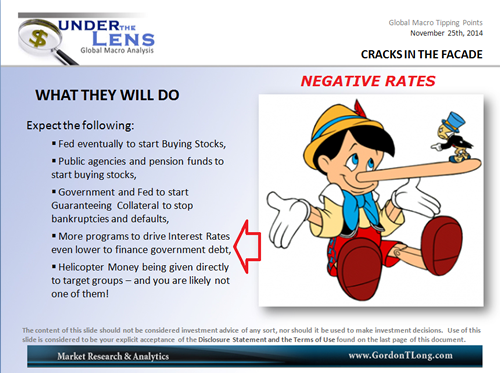 |
01-26-15 | THESIS | |||||||||||||||||||||||||||||||||||||||||||||||||||||||||||||||||||||||||||||
FINANCIAL REPRESSION - Negative Real Rates Coming Get Ready For Negative Interest Rates In The US 01-24-15 ZH
As The Wall Street Journal explains,
Treasury Secretray Lew pipes in...
* * * And Patrick Barron predicts (via Mises Canada)...
|
01-26-15 | THESIS | |||||||||||||||||||||||||||||||||||||||||||||||||||||||||||||||||||||||||||||
JAPANESE 2 YEAR GOES NEGATIVE
GERMAN 2 YEAR GOES NEGATIVE
30 YEAR HEADING STEADILY SOUTH
|
01-26-15 | THESIS | |||||||||||||||||||||||||||||||||||||||||||||||||||||||||||||||||||||||||||||
2011 2012 2013 2014 |
|||||||||||||||||||||||||||||||||||||||||||||||||||||||||||||||||||||||||||||||
| THEMES | |||||||||||||||||||||||||||||||||||||||||||||||||||||||||||||||||||||||||||||||
| FLOWS -FRIDAY FLOWS | THEME | ||||||||||||||||||||||||||||||||||||||||||||||||||||||||||||||||||||||||||||||
| SHADOW BANKING -LIQUIDITY / CREDIT ENGINE | THEME | ||||||||||||||||||||||||||||||||||||||||||||||||||||||||||||||||||||||||||||||
| CRACKUP BOOM - ASSET BUBBLE | THEME | ||||||||||||||||||||||||||||||||||||||||||||||||||||||||||||||||||||||||||||||
| ECHO BOOM - PERIPHERAL PROBLEM | THEME | ||||||||||||||||||||||||||||||||||||||||||||||||||||||||||||||||||||||||||||||
| PRODUCTIVITY PARADOX -NATURE OF WORK | THEME | ||||||||||||||||||||||||||||||||||||||||||||||||||||||||||||||||||||||||||||||
| STANDARD OF LIVING -EMPLOYMENT CRISIS | THEME | ||||||||||||||||||||||||||||||||||||||||||||||||||||||||||||||||||||||||||||||
| CORPORATOCRACY -CRONY CAPITALSIM | THEME |  |
|||||||||||||||||||||||||||||||||||||||||||||||||||||||||||||||||||||||||||||
CORRUPTION & MALFEASANCE -MORAL DECAY - DESPERATION, SHORTAGES. |
THEME |  |
|||||||||||||||||||||||||||||||||||||||||||||||||||||||||||||||||||||||||||||
| SOCIAL UNREST -INEQUALITY & A BROKEN SOCIAL CONTRACT | THEME | ||||||||||||||||||||||||||||||||||||||||||||||||||||||||||||||||||||||||||||||
| SECURITY-SURVEILLANCE COMPLEX -STATISM | THEME | ||||||||||||||||||||||||||||||||||||||||||||||||||||||||||||||||||||||||||||||
| GLOBAL FINANCIAL IMBALANCE - FRAGILITY, COMPLEXITY & INSTABILITY | THEME | ||||||||||||||||||||||||||||||||||||||||||||||||||||||||||||||||||||||||||||||
| CENTRAL PLANINNG -SHIFTING ECONOMIC POWER | THEME | ||||||||||||||||||||||||||||||||||||||||||||||||||||||||||||||||||||||||||||||
| CATALYSTS -FEAR & GREED | THEME | ||||||||||||||||||||||||||||||||||||||||||||||||||||||||||||||||||||||||||||||
| GENERAL INTEREST |
|
||||||||||||||||||||||||||||||||||||||||||||||||||||||||||||||||||||||||||||||
| STRATEGIC INVESTMENT INSIGHTS | |||||||||||||||||||||||||||||||||||||||||||||||||||||||||||||||||||||||||||||||
|
SII | ||||||||||||||||||||||||||||||||||||||||||||||||||||||||||||||||||||||||||||||
|
SII | ||||||||||||||||||||||||||||||||||||||||||||||||||||||||||||||||||||||||||||||
|
SII | ||||||||||||||||||||||||||||||||||||||||||||||||||||||||||||||||||||||||||||||
|
SII | ||||||||||||||||||||||||||||||||||||||||||||||||||||||||||||||||||||||||||||||
| TO TOP | |||||||||||||||||||||||||||||||||||||||||||||||||||||||||||||||||||||||||||||||
Tipping Points Life Cycle - Explained
Click on image to enlarge
TO TOP
�
TO TOP
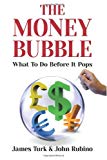
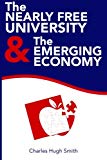










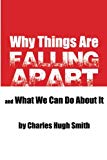



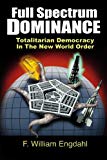
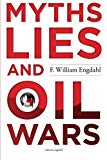

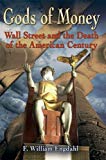
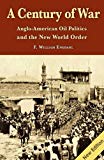











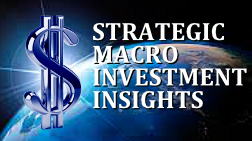
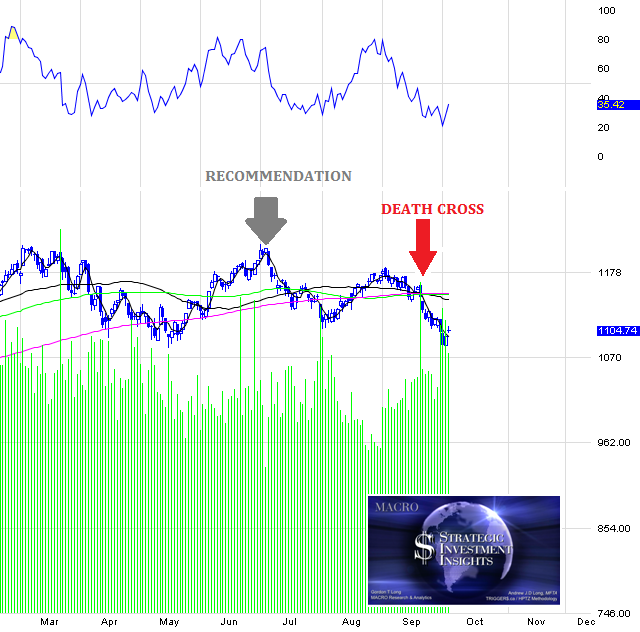
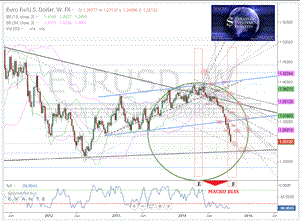


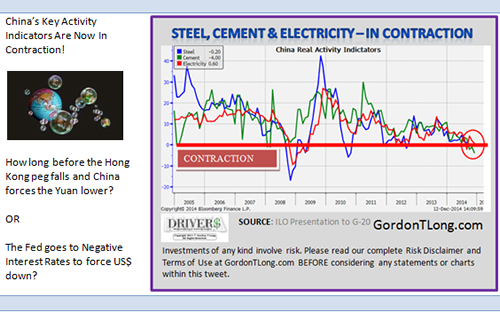








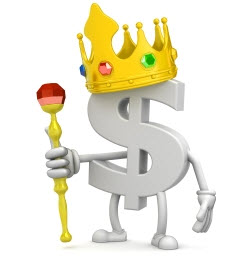 With Fed mouthpiece Jon Hilsenrath warning -
With Fed mouthpiece Jon Hilsenrath warning -






